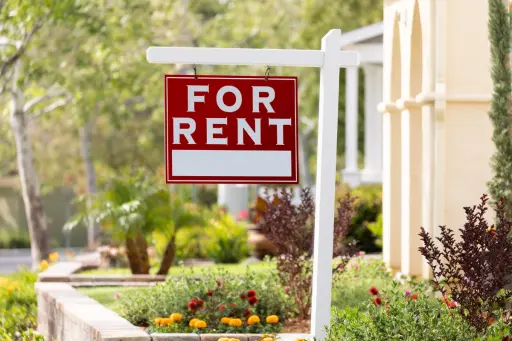
Deciding between renting and buying property in Thailand isn't straightforward - you need to consider everything from what you'll pay upfront to where you want to be financially years down the road. We help clients navigate this exact choice regularly, and it's rarely as simple as it first appears. Whether you're dreaming of a beachfront villa in Phuket or eyeing a sophisticated condominium in Bangkok's business core, understanding what each path offers, and what it costs becomes crucial for making the right call for your situation and investment objectives.
Current Thailand Property Market Overview
Thailand's property market in 2025 presents compelling opportunities for both renters and buyers. National gross rental yields currently average around 6.17%, with regional variations that significantly impact investment returns. Bangkok maintains yields of approximately 6.05%, while Samut Prakan shows stronger performance at 7.1%. Phuket, despite being a premium destination, yields around 5.9%.
The market dynamics reveal strong demand in tourist-centric areas and prime urban locations. Luxury villas in destinations like Phuket and Koh Samui continue attracting international investors, while central Bangkok condominiums remain highly sought after by both local and foreign buyers. Tourism recovery has bolstered rental demand in resort areas, creating favorable conditions for property investors seeking steady income streams.
Current mortgage rates present an attractive financing environment, with effective rates ranging from 4% to 6% APR depending on the lender, borrower profile, and loan terms. However, foreign buyers typically face stricter lending criteria, including higher down payment requirements and more extensive documentation processes.
Advantages of Renting Property in Thailand

Renting offers immediate financial accessibility with minimal upfront investment. Most rental agreements require only a security deposit plus one to two months' rent in advance, making it an attractive option for newcomers to Thailand or those with limited initial capital. This low barrier to entry allows you to secure quality accommodation without the substantial financial commitment required for property purchase.
Flexibility represents perhaps the most significant advantage of renting. Thailand's diverse regions offer vastly different lifestyles, from the bustling urban energy of Bangkok to the tranquil beaches of the southern islands. Renting property in Thailand allows you to experience various locations before making a long-term commitment, whether you're relocating for work, exploring retirement options, or simply wanting to experience different aspects of Thai culture.
The absence of maintenance responsibilities provides considerable peace of mind. Property upkeep, repairs, and major renovations become the landlord's responsibility, freeing you from unexpected expenses and time-consuming management tasks. This arrangement particularly benefits those who travel frequently or prefer a hands-off approach to property management.
Renting also shields you from property market volatility. While real estate generally appreciates over time, markets experience cycles of growth and decline. Renters avoid exposure to potential capital losses during market downturns, making this option suitable for risk-averse individuals or those uncertain about long-term market performance.
Disadvantages of Renting Property in Thailand
The primary drawback of renting lies in the absence of equity building. Monthly rent payments provide accommodation but generate no ownership stake or potential for capital appreciation. Over time, particularly in markets with rising property values, the opportunity cost of not building equity can become substantial.
Rent increases pose another concern, especially in Thailand's popular tourist destinations where demand consistently outpaces supply. Annual rent adjustments tied to inflation or market conditions can significantly impact long-term housing costs, potentially making renting more expensive than ownership over extended periods.
Limited control over the property restricts your ability to customize the space to your preferences. Most rental agreements prohibit significant modifications, pet ownership, or subletting arrangements. This limitation can be particularly frustrating for long-term residents who desire a more personalized living environment.
Benefits of Buying Property in Thailand

Buying property in Thailand offers the fundamental advantage of equity building. Property ownership creates an asset that potentially appreciates over time while providing a place to live. In Thailand's growing economy, well-located properties have historically shown steady appreciation, particularly in prime areas of Bangkok, Phuket, and other major destinations.
Rental income generation presents an attractive opportunity for property investors. With gross rental yields averaging 5-7% in many urban and tourist areas, buy property in Thailand can provide steady cash flow while building long-term wealth. Short-term vacation rentals in tourist areas can potentially generate higher returns, though they require more active management and carry seasonal variations.
Ownership provides complete control over your property, allowing renovations, improvements, and customization to match your lifestyle preferences. This autonomy extends to pet ownership, garden modifications, and interior design choices that reflect your personal taste and needs.
The stability of ownership eliminates concerns about lease terminations, rent increases, or landlord decisions that might force relocation. For families or individuals planning long-term residence in Thailand, ownership provides security and the ability to establish deep community roots.
Challenges of Property Ownership in Thailand
High upfront costs represent the most significant barrier to property ownership in Thailand. Beyond the purchase price, buyers face registration fees of 2% of appraised value, potential specific business tax of 3.3% (if the seller owned the property for less than five years), and various legal and administrative expenses. Foreign buyers typically require down payments of 20-30% or higher, significantly increasing initial capital requirements.
Foreign ownership restrictions add complexity to property acquisition. While foreigners can own condominium units freehold (subject to a 49% foreign ownership limit per building), land ownership faces strict limitations. Houses and land purchases typically require complex legal structures such as long-term leases, superficies rights, or Thai company formations, each carrying specific risks and requirements.
Property liquidity concerns cannot be overlooked. Real estate transactions take time, particularly during market downturns, and selling costs including taxes, agent fees, and legal expenses can significantly impact net proceeds. This illiquidity makes property ownership less suitable for those who may need quick access to their capital.
Ongoing maintenance, property taxes, common area fees, and management costs add to the total cost of ownership. For rental properties, vacancy periods, tenant management, and property upkeep require time and resources that many owners underestimate.
Making the Right Choice for Your Situation
The rent-versus-buy choice really comes down to your personal situation, how much you can spend upfront, and what you're hoping to accomplish here. Renting makes perfect sense if you're new to Thailand and want to try different neighborhoods, don't have a huge chunk of capital ready to invest, or value the freedom to change your mind without major financial consequences.
Buying works better for people who know they're staying in Thailand long-term, investors looking for rental income and property value growth, or anyone who wants complete say over their living space. With current mortgage rates sitting around 4-6%, qualified buyers are finding decent financing conditions.
Think about how long you're planning to stay, how much risk feels comfortable, and what your money goals actually are. People here short-term or still figuring out their Thailand plans usually do better renting, while those settling in for the long haul or serious about investing typically come out ahead buying property, even with the bigger upfront costs and paperwork involved.
Professional Guidance for Your Property Journey
Your property decision should reflect a comprehensive evaluation of Thailand's diverse regional markets, each area comes with its own risk and reward characteristics that matter more than most buyers initially realize. The luxury segment we focus on shows strong stability, but even at this level, what happens in one location can be completely different from another. Having professionals who really understand these local differences means your decision works for what you need now and supports your wealth-building goals in Thailand's complex luxury property landscape.